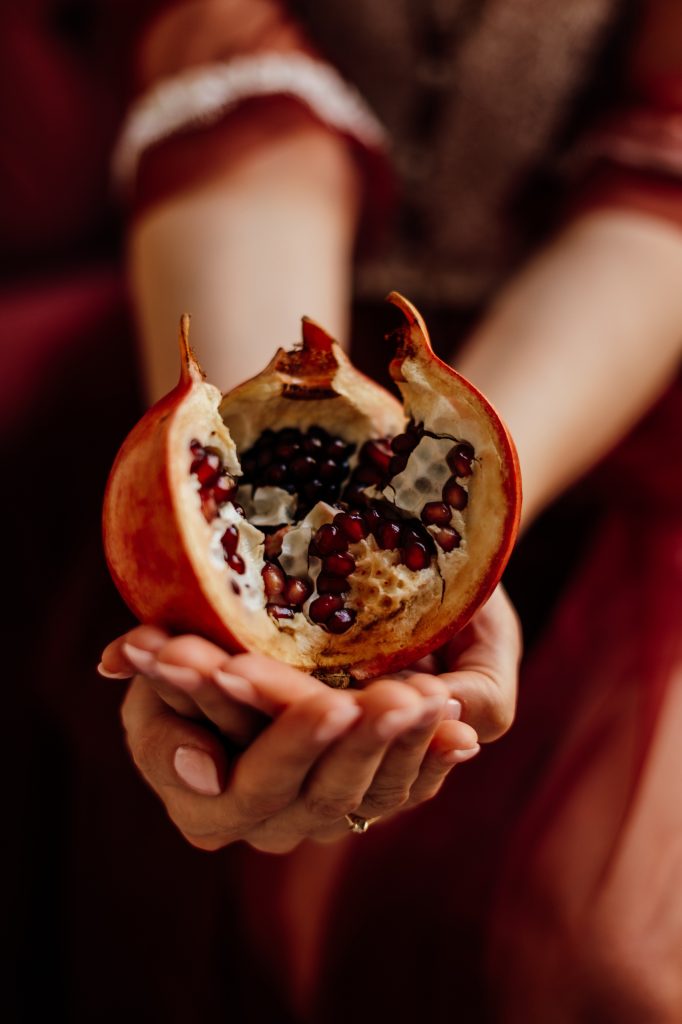Pomegranate, the fruit of life and good fortune, is smashed every year for New Year’s festivities in Greek households.
The folklore tradition dates back to Ancient Greece with its origins in the Peloponnese, and through the centuries it has spread throughout every corner of Greece. It was believed the hundreds of ruby-like seeds promised abundance and symbolised fertility.
During the festive period, the tradition is to hang pomegranates from the main door of the house at Christmas until New Year’s Eve or New Year’s Day.
Then, one person from the family home smashes a pomegranate at the front door during New Years’ festivities. By doing this, the family home is blessed with health and happiness and a good year ahead.

Variations to the tradition:
Since this tradition has lived throughout the centuries, there are many variants. Some smash the pomegranate on New Year’s Eve when the clock strikes twelve, others do it on New Year’s Day. Some even get their fruit blessed at church and smash it on the front door.
Either or, the power of the pomegranate will ultimately bring your family home an abundance of luck.
One specific way to practise the tradition is as follows: On New Years’ Day, the family attends church dressed in their best clothes. After attending the Divine Liturgy of Basil of Caesarea, the man of the house steps foot in the home first and smashes the pomegranate against the front door.
Amidst the smashing of the pomegranate, he wishes that the pomegranate, with its hundreds of arils, blesses the home with an abundance of health and happiness.

They say the more seeds that are spread across the floor, the more luck you will have in your home. Some people believe that if you get a red squirt of pomegranate juice on you, extreme luck will come your way.
Others smash the pomegranate at 12am on New Year’s Eve. Here, the tradition is to turn off all the lights, everyone steps out of the house and then at 12am the second person who enters the house after the first footer, smashes it against the door with their right hand.
All in all, the tradition of smashing a pomegranate as part of New Year’s festivities is ancient and poetic. So this New Year’s consider buying a pomegranate, and smashing it like our ancient ancestors did to bring a plethora of health and wealth to your home!


